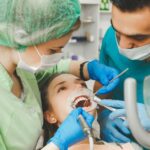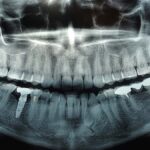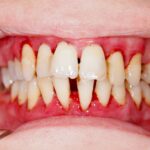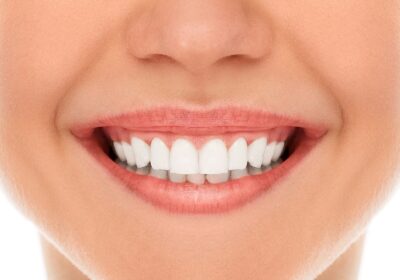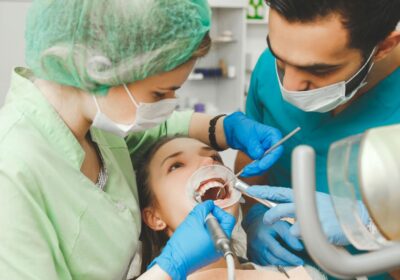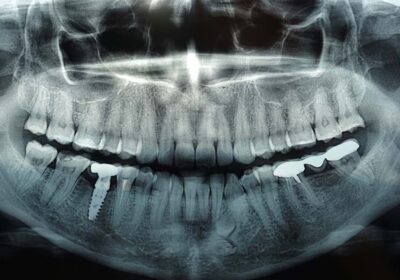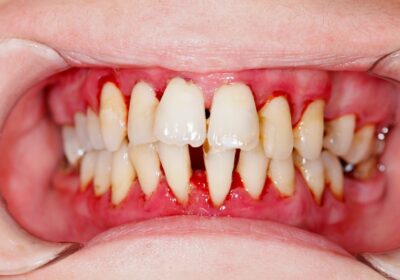
Understanding the Influence of Genetics on Oral Health
Oral health is not just about brushing and flossing; it’s also deeply influenced by genetics. The role of genetics in determining the health of our teeth, gums, and overall oral cavity is significant and often underrated. This article delves into how genetics can impact oral health outcomes, exploring both inherited traits and predispositions that can affect dental health throughout our lives.
Genetic Variations and Dental Structures
Genetics plays a crucial role in determining the structure and development of our teeth. The size and shape of our teeth, the strength of enamel, and even the positioning of our wisdom teeth can be influenced by genetic factors inherited from our parents. For example, conditions like malocclusion (misalignment of teeth) or agenesis (missing teeth) can have genetic underpinnings that manifest across generations.
Research has shown that certain genetic variations can make individuals more susceptible to dental issues such as cavities or gum disease. Genes can affect how our bodies respond to bacteria in the mouth, influencing the likelihood of plaque buildup and decay. Understanding these genetic predispositions can help individuals and healthcare providers tailor preventive care and treatment plans accordingly.
Genetic Disorders Impacting Oral Health
Some genetic disorders have direct implications for oral health. Conditions like amelogenesis imperfecta and dentinogenesis imperfecta affect the development and structure of tooth enamel and dentin, respectively. These disorders can lead to weakened teeth that are more prone to damage and decay, necessitating specialized dental care from an early age.
Additionally, genetic syndromes such as Down syndrome and ectodermal dysplasia can also affect oral health. Individuals with these syndromes often experience delayed tooth eruption, missing teeth, or abnormal tooth development, highlighting the intricate link between genetics and oral health outcomes.
The Role of Genetics in Periodontal Disease
Periodontal disease, commonly known as gum disease, is another area where genetics can exert a significant influence. Research has identified specific genetic markers associated with an increased risk of developing severe periodontitis. These genetic variations can affect the immune response to bacterial infection in the gums, influencing the progression and severity of gum disease over time.
Understanding one’s genetic predisposition to periodontal disease can prompt early intervention and personalized treatment strategies. It underscores the importance of regular dental check-ups and preventive measures to mitigate the impact of genetic risk factors on oral health.
Genetic Testing and Oral Health
Advances in genetic testing have opened new avenues for understanding and managing oral health. Genetic tests can identify inherited traits and susceptibility to certain oral conditions, offering valuable insights for personalized dental care. Orthodontist Katy TX and healthcare providers can use this information to create tailored treatment plans that address individual genetic predispositions, enhancing both preventive measures and treatment outcomes.
Genetic testing may also help predict how individuals respond to certain dental treatments or medications. This personalized approach can optimize treatment efficacy and minimize adverse effects, improving overall oral health management for patients.
Lifestyle Factors vs. Genetics: Finding the Balance
While genetics play a significant role in oral health, lifestyle factors such as diet, oral hygiene practices, and tobacco use also exert a substantial influence. A healthy diet rich in nutrients like calcium and vitamin D supports strong teeth and gums, while regular brushing and flossing remove plaque and reduce the risk of decay.
Smoking and excessive alcohol consumption can exacerbate oral health issues, irrespective of genetic predispositions. Therefore, maintaining a balanced lifestyle that includes proper oral hygiene practices and healthy habits is crucial for mitigating the impact of genetic factors on oral health outcomes.
The Future of Genetic Research in Dentistry
As our understanding of genetics continues to advance, so too does its application in dentistry. Ongoing research aims to uncover new genetic markers associated with oral diseases and conditions, paving the way for more targeted therapies and preventive interventions. Genetic therapies, such as gene editing techniques, hold potential for correcting genetic defects that contribute to dental disorders, offering hope for future treatments.
Moreover, integrating genetic insights into public health strategies can lead to more effective oral health programs tailored to diverse genetic profiles. This holistic approach promises to improve oral health outcomes on a population-wide scale, addressing both genetic predispositions and environmental influences.
Conclusion
In conclusion, genetics significantly influences various aspects of oral health, from the structure and development of teeth to the susceptibility to dental diseases. Understanding one’s genetic predispositions can empower individuals to take proactive steps towards maintaining optimal oral health throughout their lives. By integrating genetic insights with personalized dental care, healthcare providers can offer tailored treatments that address individual needs and enhance overall oral health outcomes.
As research in genetics and dentistry progresses, the potential for genetic testing and personalized medicine to transform oral healthcare continues to grow. Embracing these advancements promises a future where prevention, treatment, and management of oral health are increasingly personalized and effective.


